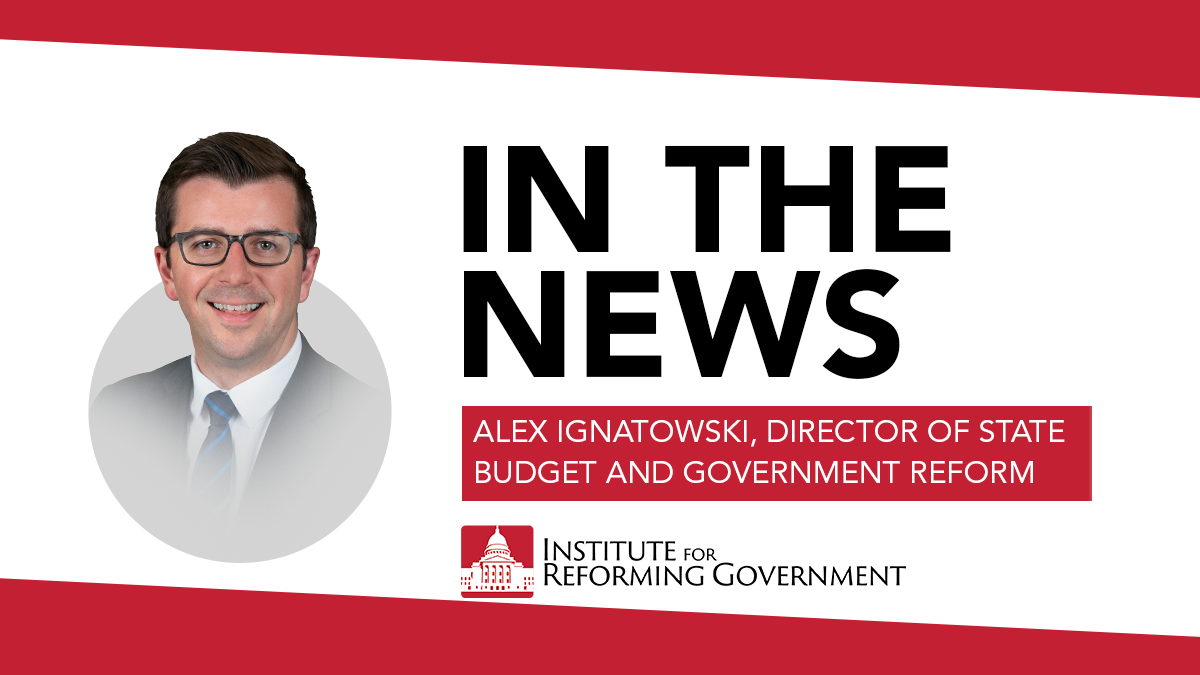The following article featuring Alex Ignatowski originally ran in The Center Square on March 2, 2023.
A new report from one of Wisconsin’s government watchdogs suggests the best way to get better health care in the state is to get the government out of the way as much as possible.
The Institute for Reforming Government is out with a new report co-authored by the former acting Director of the White House Counsel of Economic Advisors under President Trump that suggests deregulation is key to getting better, more responsive, and more affordable care.
“We have a system of health care in this country that has progressively had more and more involvement,” IRG’s Alex Ignatowski told The Center Square. “Whether it was in the 60s with the creation of programs like Medicare and Medicaid, or going into the regulatory models that we now try and have the government go in and choose the incentives and ultimately choose what they think would provide better outcomes.”
RG’s report suggests regulatory changes like allowing nurse practitioners to do more so that patients don’t always have to see a doctor. The report also suggests that Wisconsin “grow” more doctors by admitting more students to the University of Wisconsin’s medical school.
Other reforms would make changes to Medicaid.
First, Ignatowski said, Wisconsin should work with Congress to move single, childless adults off of the state’s Medicaid rolls, and on to private insurance plans through the Obamacare marketplace.
“It’s the same old argument. ‘We need to expand Medicaid. Get more people on to government-run health insurance,’,” Ignatowski explained. “For us, that’s not the solution. The solution is using things like public benefits to get people into a situation where they can get private insurance.”
Wisconsin would need a federal waiver, or a vote from Congress to do that, however.
The IRG report also recommends Wisconsin end its state-mandated cap on nursing home capacity.
“Long term care, including nursing home services, accounts for $4 billion of Wisconsin’s $9.7 billion Medicaid program (SFY 2020). Wisconsin has a statutorily imposed limit on the number of licensed nursing home beds, stifling competition and impacting the spectrum of care,” the report states.
There are several other specific reforms that deal with costs, audits, and transparency.
Ignatowski said Wisconsin lawmakers can accomplish some reforms on their own, while others will need Gov. Evers’ signatures. Some reforms, he said, could be handled by people outside of government.

